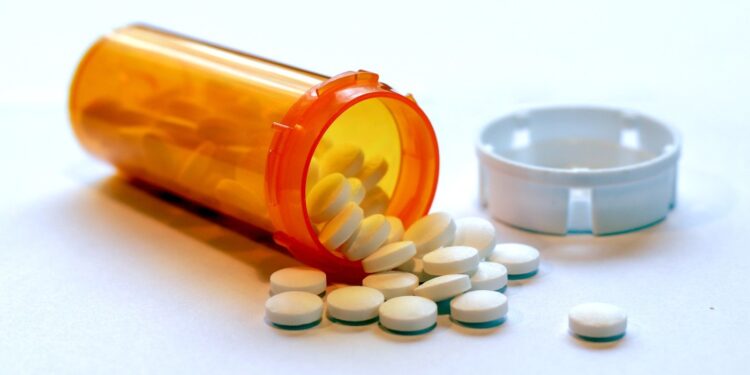
The City of Baltimore has reached an $80 million settlement with Teva Pharmaceuticals, one of the defendants in the city’s ongoing lawsuit against drug manufacturers and distributors accused of contributing to the opioid crisis.
The settlement brings the total amount the city has won from opioid companies to more than $322 million, Mayor Brandon M. Scott announced. Baltimore’s lawsuit against the remaining companies is set to go to trial next week.
“This settlement marks another major victory for the City of Baltimore and further validates our decision to carry on in the fight to hold these companies accountable,” Scott said in a statement.
The city opted out of previous global settlements with Teva and other major opioid companies to pursue its own lawsuit in hopes of winning larger payouts. The settlement announced Monday is more than seven times what Baltimore would have received as part of a national settlement with Teva, the city said in a news release. Teva also will pay out the full $80 million by July 2025.
“In total, the city has now secured more than three times the total amount it would have received from all available global settlements with opioid defendants,” the city said.
The Teva deal is the fourth settlement announced in connection with the city’s opioid lawsuit, which alleges opioid manufacturers and distributors irresponsibly marketed addictive painkillers and failed to block unusually large orders of drugs to Baltimore pharmacies. More than half a billion legal opioids flooded the Baltimore area between 2006 and 2019; the city claims the glut contributed to its ongoing overdose crisis.
Baltimore previously announced $45 million settlements with Allergan and CVS and a $152.5 million settlement with Cardinal Health, a major opioid distributor.
The city did not say how much of the Teva settlement will go to its outside counsel in the opioid lawsuit, the New York law firm Susman Godfrey. Nearly half of the Allergan settlement went to Susman Godfrey, an amount that included both attorney fees and a $5 million reimbursement for expenses the firm incurred during the litigation. Law firms that take cases on contingency typically keep about a third of any proceeds.
Under the Teva settlement, the city said it will allocate $5 million for education and outreach about the 988 suicide and crisis hotline, $3 million to Penn North Recovery Center and $2 million to the BMore POWER program of Baltimore Behavioral Health System, which stands for Peers Offering Wellness, Education and Resources.
The remaining money will be distributed under a plan Scott outlined last month for how the city will manage the opioid settlement money. In an executive order, Scott established an opioid restitution fund and detailed guidelines for how the money can be used. The city also plans to create a Restitution Advisory Board to review grant applications and make recommendations for how to spend the money.
The executive order also created two new positions, an executive director of overdose response and an opioid restitution program manager who will support the advisory board.







